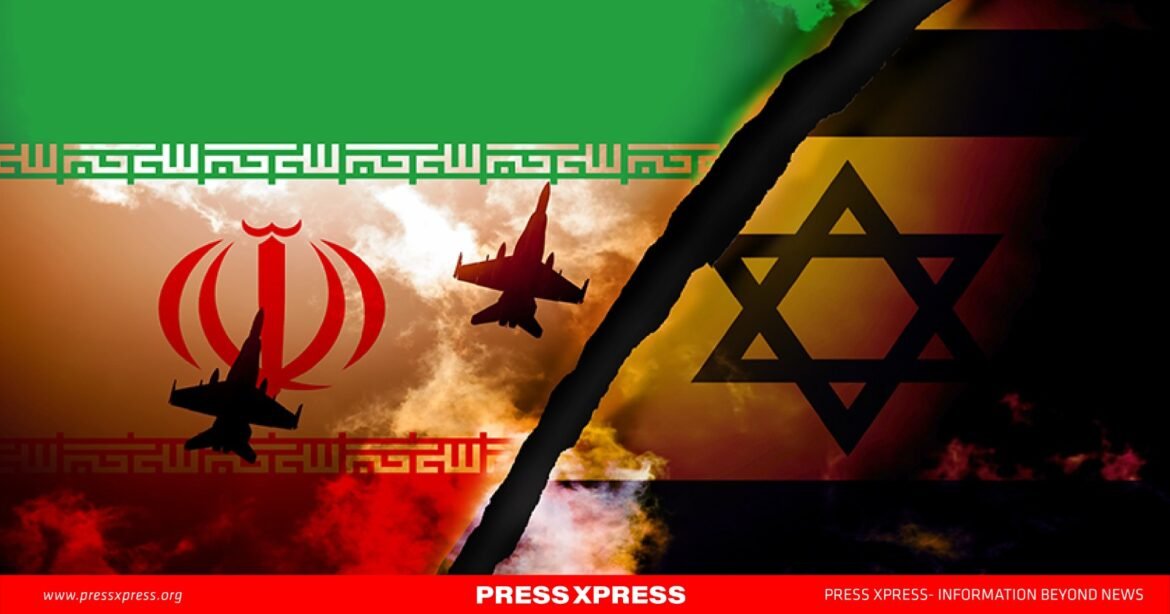Iranian officials have threatened retaliation after recent Israeli airstrikes on Iranian territory, intensifying a cycle of escalation that has brought the two nations closer to an all-out conflict.
In statements made on Thursday, top Iranian officials, including General Ali Fadavi, deputy commander of Iran’s Revolutionary Guards Corps, said Iran’s response to the Israeli attacks is “definite.”
Speaking to Lebanon’s Al Mayadeen television, Fadavi emphasized Iran’s capability to “destroy all that the Zionists possess with one operation,” signaling Tehran’s intent to strike back.
The October 26 airstrikes targeted key defense infrastructure in Iran, including air defenses and critical energy facilities. Iranian media reported that Fadavi’s remarks marked the first official response to these strikes, which have underscored the ongoing tit-for-tat attacks that have taken place over the last six months.
Gholamhossein Mohammadi Golpayegani, the head of the supreme leader’s office, described Israel’s actions as “desperate” and promised a “tooth-breaking response,” according to Tasnim, a semi-official news outlet associated with the Revolutionary Guards.
While the scope and timing of Iran’s planned response remain unclear, the rhetoric from Tehran raises questions about how the conflict could further escalate.
According to Iranian officials, Supreme Leader Ayatollah Ali Khamenei instructed Iran’s Supreme National Security Council to prepare for action after reviewing a report detailing the extent of the damage from Israeli strikes.
Khamenei reportedly called the attacks—and the deaths of at least four Iranian soldiers—too severe to overlook, warning that not responding would be tantamount to conceding defeat.
Cautious Move
Analysts suggest that Tehran’s response could be postponed until after the upcoming U.S. elections, as Iranian leaders weigh the regional ramifications of escalating hostilities. Sources close to the Iranian leadership, speaking on condition of anonymity, indicated that military planners are preparing a list of targets within Israel, though they are cautious of provoking further backlash that could strain Iran’s economy and infrastructure, report AFP.
The commander of Iran’s Quds Force, General Ismail Ghaani, stated on Thursday that Iran would support Hezbollah in Lebanon, which has been locked in its own conflict with Israeli forces.
Meanwhile, Israel has made clear its readiness to escalate further if required. Prime Minister Benjamin Netanyahu said on Thursday that Israel’s recent actions have weakened Iran’s defensive capabilities and granted Israel “greater freedom to operate” within Iranian territory. Netanyahu’s remarks came amid Israeli assertions that their latest strikes targeted critical missile production capabilities while preserving Iran’s existing missile stockpiles, which could be mounted on mobile launchers.
Despite downplaying Israel’s impact, Iranian media have acknowledged some damage to Tehran’s air defenses and energy infrastructure. Israeli airstrikes on missile production sites and air defenses around Tehran have reportedly left Iran’s critical sites vulnerable to future strikes, with some analysts suggesting that Israel is seeking to undermine Iran’s capacity to retaliate effectively.
This latest escalation comes as Israel continues its ground operations against Hamas in Gaza and battles Hezbollah in southern Lebanon, sparking concerns of a wider regional conflict.
From ‘Shadow War’ to Open Confrontation
For decades, Iran and Israel have been engaged in a covert “shadow war” across the Middle East, with each targeting the other’s allies and assets. However, recent direct strikes and counterstrikes indicate that both nations are increasingly willing to conduct overt attacks, risking a broader confrontation.
Historical points of tension between Iran and Israel have included a series of targeted assassinations, drone strikes, and attacks on key military and energy infrastructure, further illustrating the prolonged nature of their rivalry. Notable incidents include Israel’s assassination of Iran’s top nuclear scientist Mohsen Fakhrizadeh in 2021 and the killing of high-level Iranian military figures in Syria and Iraq over the years. More recently, the October 7 attacks by Hamas on Israeli soil, which prompted Israel’s barbaric operations in Gaza, have fueled further tensions across the region.
As Iranian officials continue to weigh their options, the Israel-Iran conflict underscores the fragility of regional stability in the Middle East, with both sides appearing unwilling to back down. With heightened rhetoric from both Tehran and Jerusalem and as each side steps up preparations for further confrontation, the coming weeks will be critical in determining whether this exchange of threats turns into another round of open hostilities.


